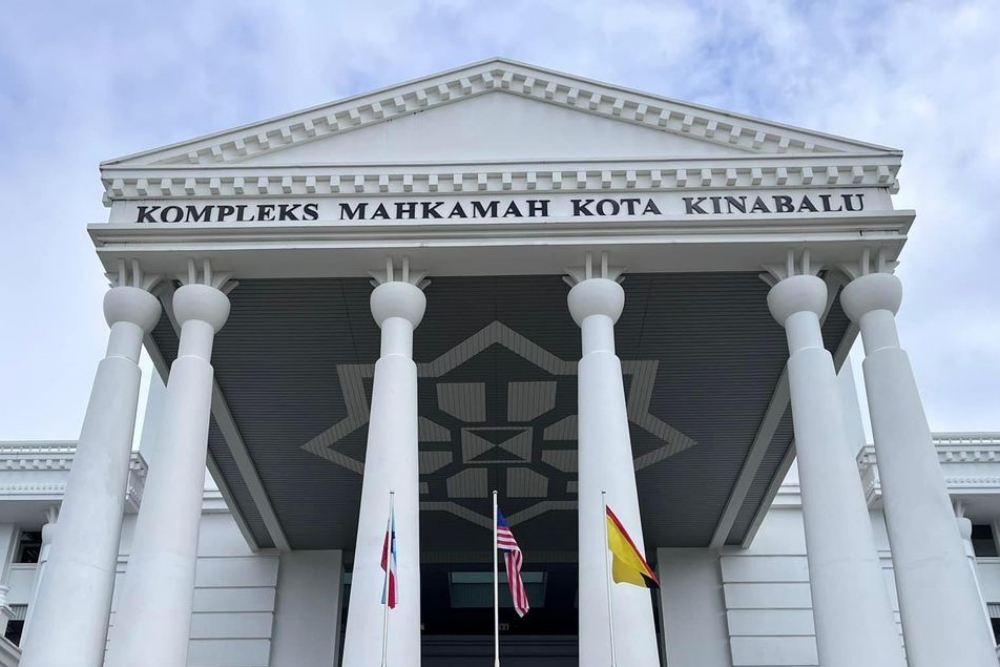ADVERTISE HERE
KUCHING: A political analyst has expressed that demands to increase parliamentary seats for the Borneo states will have positive implications for both Sabah and Sarawak.
Prof Datuk Dr Sivamurugan Pandian believes that the matter will bring a new balance between Peninsular Malaysia and Borneo.
“However, other states’ interest should also be brought to the drawing board,” he told New Sarawak Tribune when contacted.
He also said what is necessary now is a detailed negotiation and bargaining which can include various bodies to ensure the end result is a win-win for everyone.
The National Unity Advisory Council (MPPN) member also said that when Borneo has a stronger voice in Parliament, it will not only be in a better position to influence decision making on forming government.
“But also the autonomy on state development, finance and fasten the urbanisation process beside infrastructure development,” he said.
When Malaysia was formed, he said Singapore, Sabah and Sarawak made up one third of the seats in Parliament.
“However, when Singapore left Malaysia, its seats (15 then) were taken by Peninsular instead of given to Borneo equally.
“Borneo states want this one-third share to be restored because apparently the Special Council on the MA63 endorsed this demand two years ago,” he said.
Under Article 46 of the Federal Constitution (FC), he said, Malaysia currently has 222 parliamentary seats, with Sarawak holding 31 and Sabah 25.
Prof Sivamurugan further explained that to increase these seats for Borneo, it would also require a constitutional amendment, a process that could also involve re-delineation.
“What can be done is to study thoroughly the request behind the door, and find a consensus in order to avoid state-federal clash.
“From 54 to 74 seats, Sarawak may want to revisit the Malaysia Agreement (MA63) Agreement but at the same time, other states’ concerns must also be taken into consideration,” he said.
Last September, Sarawak Premier Datuk Patinggi Tan Sri Abang Johari Tun Openg called upon the federal government to restore the 35 per cent or one-third of the parliamentary seats allocation for Sarawak and Sabah.
He said this was to prevent amendments to the FC regarding the interests of the Borneo states.
Abang Johari also said when Singapore was separated from Malaysia, its parliamentary seats were taken by Peninsular Malaysia, instead of being distributed to Sarawak and Sabah.
“With one-third (parliament seats held by Sarawak and Sabah), we can make sure that MA63 remains intact.
“In the Cobbold Commission Report, the word mentioned was ‘safeguard’,” he said during an event held at the Dewan Suarah Kapit.
Currently, Sarawak has 31 parliament seats and Sabah holds only 25 seats, for a total of 56 seats or 25 per cent of the total 222 seats.
The Commission Cobbold was established to determine whether the people of Sarawak and Sabah supported a proposal to create the Federation of Malaysia consisting of Malaya, Brunei, Singapore, North Borneo (Sabah) and Sarawak.
Any amendments to the Federal Constitution can only be passed with a two-thirds vote of the total number of members of parliament.
Meanwhile, Article 159(3) of the FC states that a constitutional amendment can be made if it is supported by a two-thirds majority in both the Dewan Rakyat (House of Representatives) and the Dewan Negara (Senate).
Article 159 (3) reads: “ (3) A Bill for making any amendment to the Constitution (other than an amendment excepted for the provision of this Clause) and a Bill for making any amendment to law passed under Clause (4) of Article 10 shall not be passed in either House of Parliament unless it has been supported on Second and Third Readings by votes of not less than two-thirds of the total number of members of that House.”
However, for amendments affecting the special interests of Sabah and Sarawak such as matters relating to their autonomous rights, territorial boundaries, or privileges under MA63, the consent of the Yang di-Pertua Negeri of Sabah and Sarawak (the Governors) is required.
For other types of constitutional amendments that do not specifically affect Sabah and Sarawak’s interests, the amendment can proceed with just the two-thirds majority, even if Sarawak (or Sabah) does not support it.
In short, unless the amendment directly affects Sarawak or Sabah’s special interests, it can still pass without their support, as long as the two-thirds majority is met in both houses of Parliament.
Therefore, it is important that the number of seats reflects a fair and balanced representation of members of Parliament between Sabah, Sarawak and Peninsular Malaysia.
This explains the safeguards for Sabah and Sarawak as outlined in historical documents, specifically the Cobbold Commission Report, the Inter-Governmental Committee (IGC) Report, and the MA63 and how the Malaysian courts interpret such safeguards.
The demand by the Sarawak government for one-third of the Parliamentary seats is based on the safeguards and assurances outlined during the formation of Malaysia, specifically documented in the Cobbold Commission Report and the IGC Report.








 English (US) ·
English (US) ·